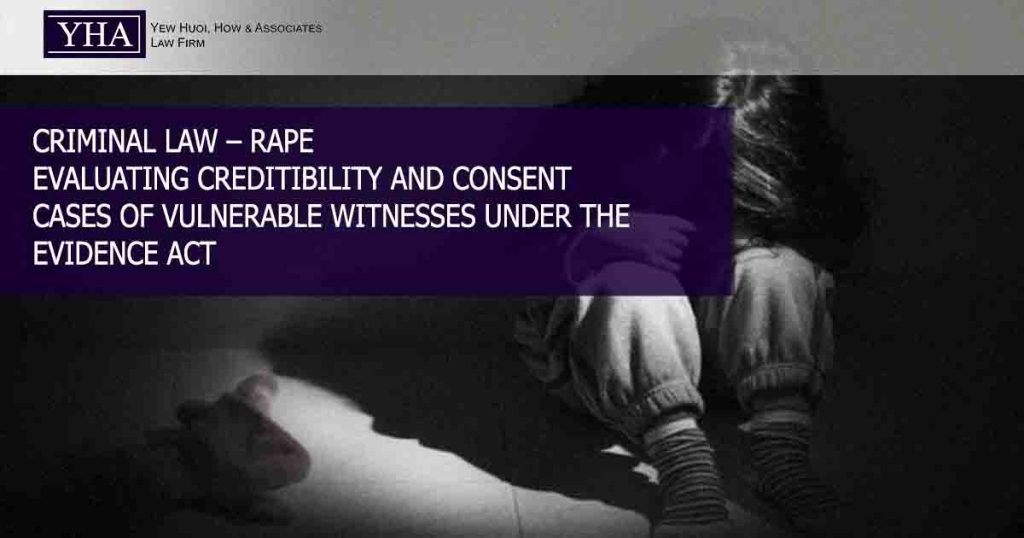1. Illustrative scenario:
X (father) the defendant is the biological father of the victim, Y (daughter) the plantiff was raped and sexually abuse by X. Y has a learning disability (OKU).
Y was sexually abused by X since 7 years old, Y was afraid to tell her stepmother as Y assume that her stepmother will not believe and get mad at her.
On June 2019, the incident happened during midnight of the fasting month of Ramadhan. The victim was able to descirbe X’s action upon her. The court found that Y was capable to answer those important questions and who was the victim of the crime and who was the perpetrator of the crime.
X challenged the evidence credibility of Y by adducing Y’s learning disability.
Issues:
- Does a learning disability solely impact the credibility of the complainant’s evidence?
- Has the defendant successfully introduced reasonable doubt concerning the prosecution’s case?
2. Laws & Legal Principles:
- Section 133A of the Evidence Act 1950 : This section concerns the testimony of children of tender years. If the court deems a child sufficiently intelligent to comprehend the importance of truthfulness and their testimony is considered reliable, it can be accepted even if not sworn under oath. Once recorded in writing according to Section 269 of the Criminal Procedure Code (which pertains to offenses allowing arrest without a warrant), such testimony is treated as a formal deposition;
- Aggravating factor : The accused, X, being Y’s biological father, significantly aggravates the offense due to the betrayal of trust inherent in his role as her protector.
- Consent and Legal Definitions:
- Penal Code Definition: According to Section 375 of the Penal Code, rape involves sexual intercourse without consent, or where consent is obtained through duress, coercion, fraud, or misunderstanding;
- Lack of Consent: The prosecution is tasked with proving that the sexual act was performed without the victim’s voluntary and informed consent, which must be given freely and consciously, absent any form of coercion, intimidation, threat, or physical force;
- Force or Coercion: Involves either the actual application of physical force, or the threat thereof, along with psychological pressure or manipulation.
- Capacity to consent: Considers whether the victim had the mental and emotional capacity to consent, considering factors like intoxication, disabilities, and overall vulnerability.
- Penalties: Conviction can lead to imprisonment ranging from a minimum of five years to a maximum of twenty years and may include whipping.
3. Application to Scenario:
- In this scenario, the court is likely to determine that the defendant exploited the victim’s learning disability to commit the crime during her early childhood.
- Additionally, the victim demonstrated the ability to comprehend and respond appropriately to critical questions in the case. The court would deem the victim a credible witness, capable of understanding the questions and responding in straightforward terms.
4. Reference cases:
- Mohamed Jusoh bin Abdullah and Anor v Public Prosecutor [1947] MLJ 130
- Letitia Bosman v Public Prosecutor and other appeals (No 1) [2020] 5 MLJ 277
- Mohd Radhi Bin Yaakob (supra)
- Mohd Jaffri bin Wazin v Public Prosecutor [2024] MLJU 1060

